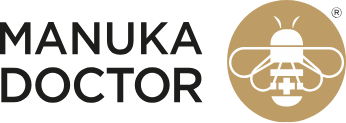Everyone of us wants to stay healthy. In fact, people spend a lot of money doing just this. In the United States alone, health care spending runs about 4.3 trillion dollars per year and the nutritional supplement industry adds another 60 billion dollars to that tab. And those figures don’t include all the money people spend to look good - from gym memberships to haircuts to Botox and beyond. People will try just about anything.
Which makes me wonder how much of this is just wasted? One can argue over which health/beauty fads are really useful but at the end of the day, somewhere along the line, people are being ripped off. Consumers are being sold things that don’t contain what the bottle says it contains. Savvy marketers are leading people down the wrong path because of “stretching the truth” labeling laws.
It really bothers me and dilutes true health messages that can come from natural products when this occurs; because, these deceitful practices occur across the board; from what we eat to what we put on our bodies.
Let me give you just one example of what I mean because it really surprised me.
According to a recent class action lawsuit, filed by commercial beekeepers in the US imports of cheap, fake honey from Asia are pushing American beekeepers to financial collapse.
Apparently, the country’s largest honey importers and packers are flooding the market with counterfeit honey. Who knew there was even such a thing?

Allegedly, there is an an organization set up by the importers and packers to operate a honey-certification scheme that the beekeepers claim passes off fake honey as genuine.
Honey fraud can take many forms, from harvesting honey from beehives before it has matured and drying it artificially, to adding cheap sugars and syrups - which is exactly what people are trying to avoid by switching to honey.
I could have chosen a myriad of examples because this doesn’t happen to just honey; but honey is the most adulterated food after milk and olive oil. I once wrote a story which turned into a book, The Hamptons Diet, about the devious world of oils - olive oil in particular. You see, America consumes more “Italian” olive oil per year than Italy produces. And, America consumes more “extra virgin” olive oil per year than the entire world produces. You do the math. Lots of funny business in the food and health business.
The same practice is occurring in the honey business. There is more honey being sold each year than existing bee populations can produce and from some countries which don’t even have the climate to produce large volumes of honey.
I guess what I am trying to say by this little illustration using honey and olive oil is that staying healthy isn’t a cheap endeavor. I want to encourage people to only spend their money wisely on the right solutions - not chase quick fixes or buy things which appear too good to be true.
One must remember what our parents or grandparents may have taught us: if it looks too good to be true; or too inexpensive it most likely is not the real deal.
So, if you want the real deal in honey, then you have to buy genuine Manuka honey that’s from New Zealand. It meets all the correct criteria. It is lab tested to ensure purity of the honey. It meets the rigorous NZ Government Standard and they know where their bees come from - always a good thing to know whenever you eat anything.

